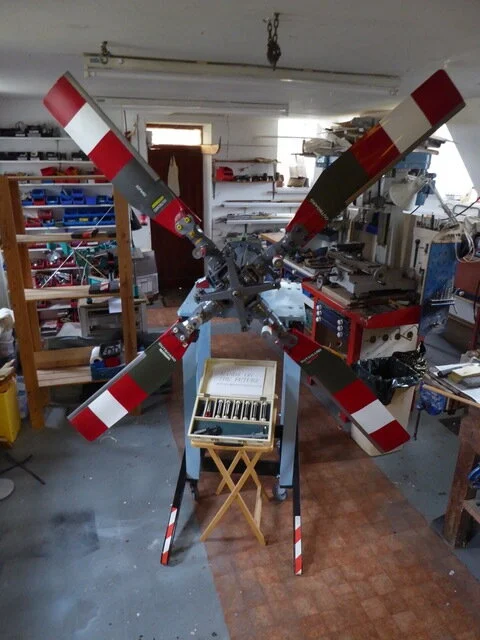Why I help Hands On The Future
A visit to a careers’ fair at Hampshire’s Aegeas Bowl in February 2018 opened my eyes to the skill and creativity of engineers and engineering. One of the themes at this Solent Local Enterprise Partnership event was to highlight ideas for future employment. I decided to leave my comfort zone and attend a breakout session by ‘Hands On the Future™’.
Peter Mucci, one of the founders of HOTF, explained in his ‘Future Proofing’ talk why the group are passionate about the hands-on experience in design, manufacture and maintenance. “Engineering is about ingenuity and the creation of tangible products and processes that are manufactured and which work. Science would be the starting point, theory being applied through innovation and engineering.”
“Engineers, design, manufacture, install and maintain the functioning world. Industry wants care, deftness and attention to detail from youngsters whether they become surgeons or plumbers. Maintaining safety in society is a 'People-to-people' activity largely achieved through the control and manipulation of machines. The 'making' side has the value of improving personal and societal life, and confirms, through practice, the value of calculation, design and prototyping.”
He handed out to the audience several sheets of paper with different thicknesses for us to test our hand-eye coordination in judging the differences by feel and touch.” This lively talk by Peter, primarily a mechanical engineer, persuaded me to make contact with HOTF after the event. I agreed to meet him and the other founders – Alan Tricklebank (civil engineering) and Mike O’Sullivan (aero) – at the Duke of Wellington pub, Southampton. From that first encounter my close association with HOTF has grown.
My creativity is as a writer and editor, and creative activities of all kinds fascinate me. However, I was unaware of the importance of the hands-on experience in the world of education. Sadly, students have little chance these days to learn, develop and practice creative hands-on skills. Traditional workshops have given way to computer studios.
HOTF is well connected with Southampton Solent University, and in 2019 Alan and I were shown round an engineering workshop by Professor Jonathan Ridley. He insists that hands-on skills play an important part in design and manufacturing processes.
Alan introduced me to another HOTF supporter, this time in industry - Dr Richard Little, CEO of Jenton International Ltd in Whitchurch, Hampshire. He too contests the view held by the Government that the need for hands-on skills will soon disappear with the advance of machine technology, robots and AI. When Damian Hinds was Secretary of State for Education he told me that his civil servants had assured him that the value of hands-on skills will disappear in the next 10 years, when machines and IT will take care of everything. This mistaken view is commonly held.
Last year HOTF’s impressive Rotor Challenge, with the design led by Peter and Mike (an artist and sculptor as well as an aircraft engineer), was shown at two careers’ fairs run by EBP South, at Beaulieu and at Southampton Guild Hall. Two female engineers (STEM ambassadors) conducted the presentation at Beaulieu and a male and a female at Southampton Guild Hal. The interest from female as well as male students was remarkable and encouraging. We are all disappointed that the pandemic has put paid to planned exhibitions in 2020.
I’m dedicated to use my writing skills, my networking contacts and my energy to help spread the word to the world – partly through communications and connections on this website:
HOTF makes complete sense in encouraging students to gain hands-on experience and think of engineering as a creative, varied and exciting career.

